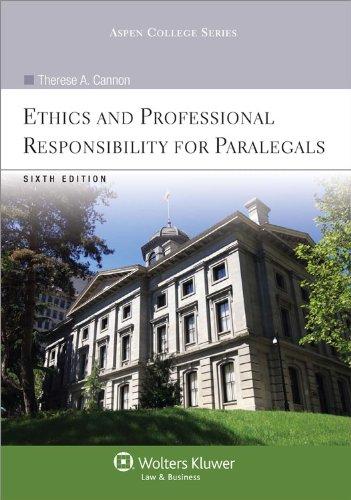All of the debtors involved in these matters consultedWe the People [WTP] to prepare bankruptcy petitions. In
Question:
All of the debtors involved in these matters consultedWe the People
[WTP] to prepare bankruptcy petitions. In each case, Chapter 7 petitions were filed, and Vincent Gould was listed as the petition preparer. . . . The trustee found inaccuracies and omissions in the Statements and Schedules of the debtors in Finch, Toalson, and Smith. Accordingly, the trustee filed dischargeability actions pursuant to 11 U.S.C. §727 seeking to deny the debtors’ discharges for omitting or providing inaccurate information on their petitions, Statements, and Schedules.
Each of these debtors filed their petitions pro se, but following the dischargeability complaints filed by the Chapter 7 trustee, each debtor retained counsel to defend the adversary proceedings. In all three cases, the debtors filed third-party actions against Vincent and Shannon Gould and WTP alleging that the negligence, breach of contract, and/or violations of 11 U.S.C. §110 led to the omissions and inaccuracies in their bankruptcy filings. Accordingly, in the Finch, Toalson, and Smith cases, the debtors seek a judgment over Vincent and Shannon Gould and WTP. . . .
Harry David Finch is a former contractor who is in the process of obtaining disability. His wife died in 2001, and he has had no steady income since that time. He has a 10th grade education and difficulty reading. The debtor had been on medication for his multiple medical problems for more than two years prior to filing bankruptcy. He contacted WTP after his friend, Felicia Stevens, saw their advertisement on a bus stop. Stevens testified that she told Finch that WTP advertised bankruptcy filings for $199. Finch remembered WTP’s phone number as having ‘‘LEGAL’’ in the number and contacted them. At his WTP meeting, he signed a ‘‘Contract for Services’’ provided by WTP, received information about bankruptcy, and received a ‘‘workbook’’ to fill out and return to WTP.
Finch testified that a WTP employee named Sandy or Cindy told him that they would file everything, and that he thought WTP was representing him. When Finch got to a question asking about real property, he explained to Sandy/Cindy that he had owned some real property, but had sold it and gotten some money for it. The debtor testified that Cindy/Sandy told him that he did not have to list the property.
Finch’s friend, Felicia Stevens, helped Finch finish filling out the workbook at his house. She testified that when they got to the question concerning ownership of real property, the question had been marked through. Stevens thought maybe it should have been filled out, and she testified that she heard the debtor call WTP to confirm that the question should be blank. Although she did not hear the entire conversation, she heard Finch call WTP, and Finch then told her thatWTPsaid it should be left blank. The debtor left the real property question blank, and it was left blank on the bankruptcy petition that WTP filed. The debtor paid WTP $199 for their services, and another $199 for the filing fee.
WTP filed the debtor’s voluntary petition under Chapter 7 of the Bankruptcy Code on October 9, 2003. The debtor signed his petition, Statements and Schedules indicating that the information contained therein was correct. However, at the 11 U.S.C. §341 Meeting of Creditors, when asked by the trustee, the debtor indicated that he had owned and sold property located at 1066 Chestnut Road, Ashland City prior to filing. Finch indicated he received $15,000.00 from the sale. Upon request of the trustee, the debtor provided bank records showing that the debtor used the money to pay bills from January 2003 until July 2003.
The property had not been disclosed in the debtor’s Statements and Schedules because Finch had relied on WTP’s advice to leave the question blank. . . .
[Finch] hired an attorney after the trustee filed a §727 action against him seeking to deny his........
Questions about the Case 1 What kinds of activities are bankruptcy preparers allowed to perform and what kinds are they prohibited from performing under the statute?
What specific provisions were violated by these preparers? What were the remedies or sanctions?
2 What did the court find about the petitioners’ claims of fraud? Breach of contract? Negligence?
3 What definition of the practice of law was used? Which aspects of this definition applied to the facts here?
4 What did WTP say in its defense? Did this defense comport with the claims of Finch and others? How did the court handle this matter?
Step by Step Answer:

Ethics And Professional Responsibility For Paralegals
ISBN: 272860
6th Edition
Authors: Therese A. Cannon





